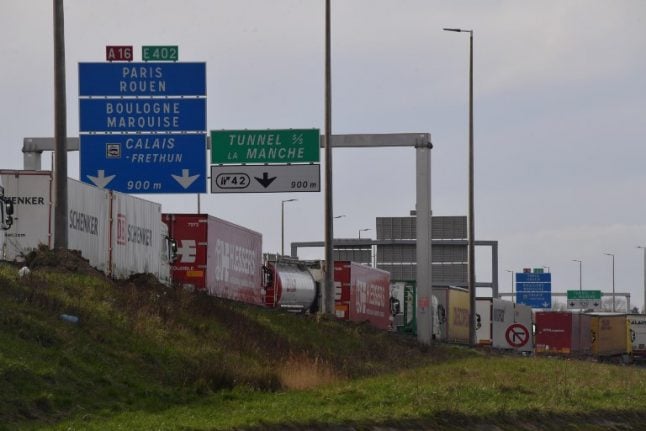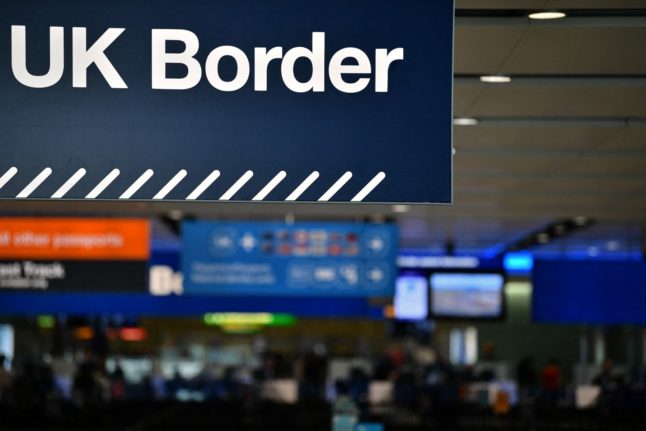protestCustoms agents began their protest on Monday to press their demands for higher pay and demonstrate what will happen if greater controls are put in place once Britain leaves the European Union, planned for later this month.
“Agents are doing longer checks than usual and it creates traffic jams immediately,” Vincent Thomazo from the UNSA union said.
“It's a protest that might last a long time because officers are just doing their jobs.”
 (AFP)
(AFP)
 (AFP)
(AFP)
Trade unions have called for an increase in overnight pay, a danger allowance, and more staff to help with the extra work which is expected once Britain breaks away from the EU.
The French government has announced the recruitment of an extra 700 customs officials to cope with the demands of Brexit, but unions want more.
On Tuesday there were several kilometres of trucks backed up along the A16 motorway which leads to the port of Calais and the entrance to the Channel tunnel which links France and Britain.
 (AFP
(AFP
Some truckers sounded their horns in frustration, fearing a repeat of the chaos on Monday when many had to wait six or seven hours to get on boats or trains heading for Britain.
Around Dunkirk, another major port handling freight between the neighbours, traffic was moving freely, unlike on Monday, local officials said.
The head of customs services at Calais, Rodolphe Gintz, told AFP that the strike had “absolutely nothing” to do with Brexit.
“It won't happen like this. We are not going to create queues of trucks. We're not going to inspect every truck one after the other for a minute,” he said on Monday.
He explained that controls would be in the other direction — on trucks arriving from Britain — and that there would be extra resources if necessary.
The leader of the Hauts-de-France region, which includes Calais and Dunkirk, told AFP last month that fears about monster traffic jams after Brexit were overblown.
“From our point of view, for the ports and the tunnel, we will be ready,” Xavier Bertrand told AFP.



 Please whitelist us to continue reading.
Please whitelist us to continue reading.
This will not affect vehicles leaving the EU for the UK.What happens if the UK reciprocates ??